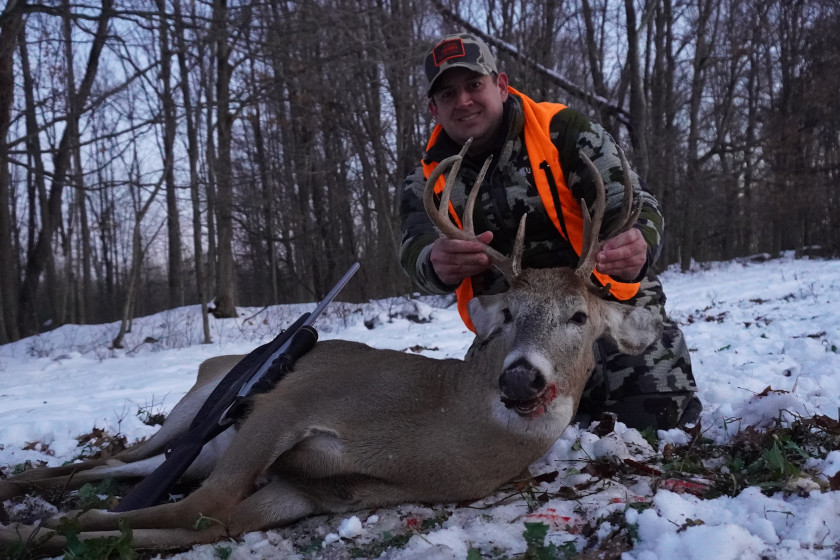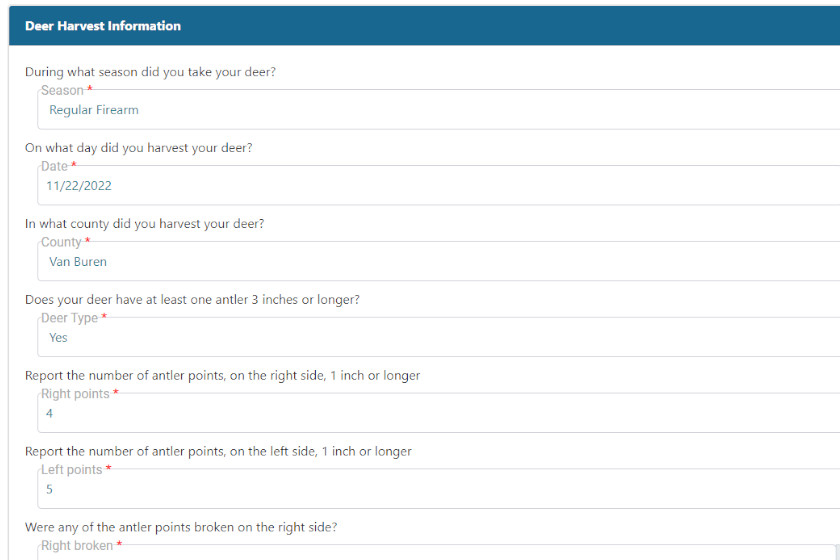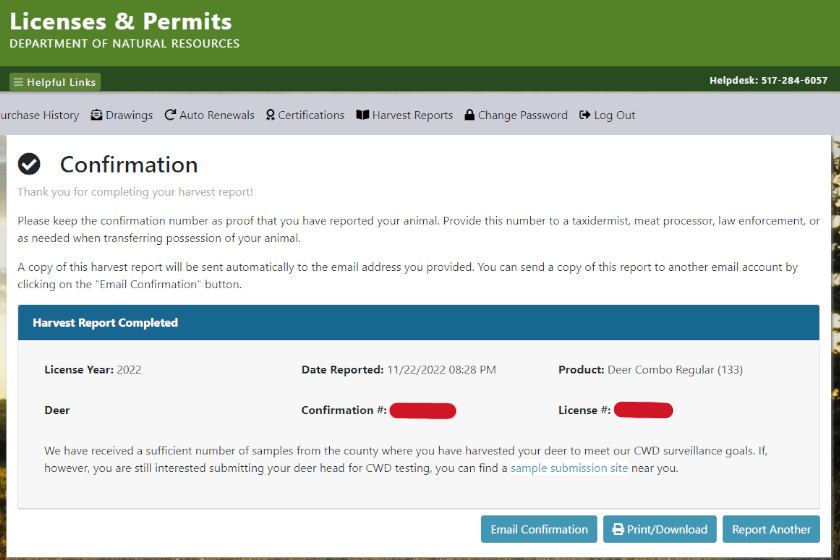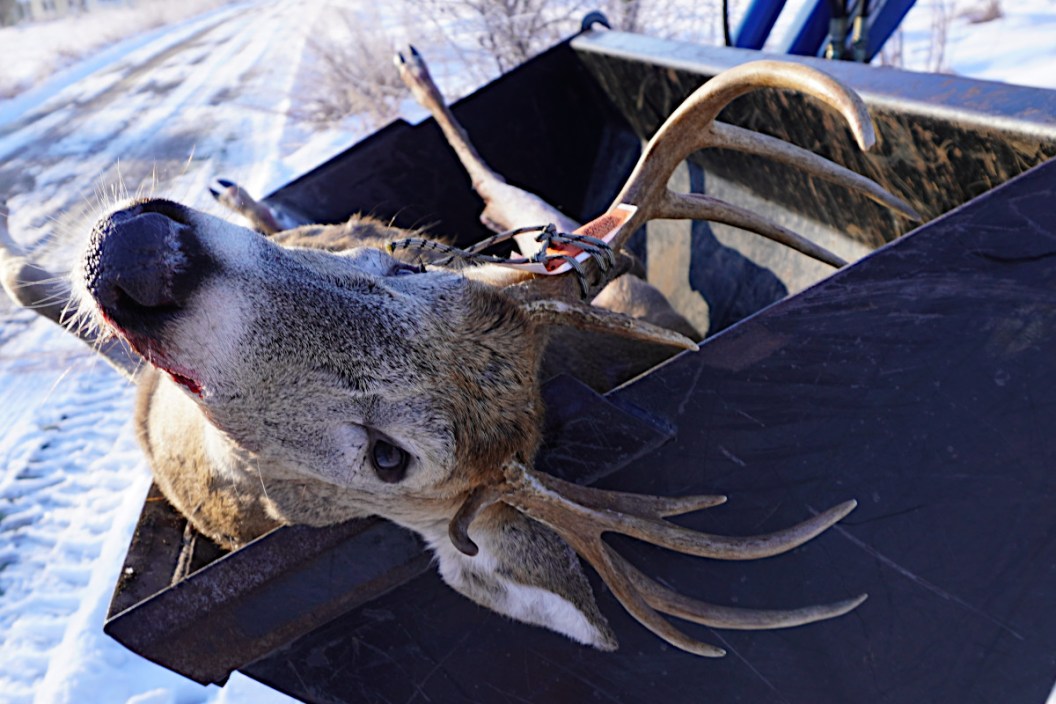Michigan is a state steeped in deep hunting traditions, and it's understandable that deer hunters were a bit miffed this year when the Michigan Department of Natural Resources announced that deer harvest reports would no longer be voluntary but mandatory in 2022. Especially since failing to report a harvest comes with some rather stiff penalties. Failure to report a harvest is a 90-day misdemeanor. Additionally, failing to follow the new reporting requirements can lead to fines of between $50 and $500.
We know some hunters were waiting and hoping lawmakers would try and eliminate the new requirements. Today, we'll examine the state of those efforts and the reasons why the DNR insisted on mandatory deer harvest reporting as one of its new management tools going forward.
Requirements and Penalties for Failure to Report

Travis Smola
As of June 2022, hunters must report all deer harvests either through the DNR website or the DNR's mobile app, which is available for both Android and Apple devices. The decision was made after the approval of an amendment of the Wildlife Conservation Order by the Natural Resources Commission. Under the new rule, a harvest report must be made within 72 hours of recovering the animal. The DNR states a report must be done before you transfer the animal to a taxidermist or processor. It also says a report is required even if you handle all your own processing yourself.
As we noted earlier, the penalties for not reporting are a bit stiff. Failure to report is a 90-day misdemeanor with fines between $50 and $500 for failing to report. Although the DNR also states on its website that for the first year, conservation officers "will emphasize an educational approach to hunters rather than enforcement in most circumstances."
Which is probably good because many hunters are likely to forget about going online to report their harvested deer in the excitement after the hunt. It should be noted that some lawmakers did express concern the penalties for not reporting seemed a bit excessive.
Subsequently, Representative Michele Holtenga introduced House Bill 6354, which sought to reduce the penalty for failure to report to a state civil infraction with a maximum fine of $150. The bill advanced quite far. However, the bill was vetoed by Governor Gretchen Whitmer, and was subsequently re-referred to committee on Government Operations. We suspect the penalties will probably be reduced in future deer hunting seasons, but for 2022, don't forget to report because the penalties are still quite harsh.
Why the DNR Decided to Mandate Reporting

A screenshot of the Michigan deer harvest reporting form. - Screen cap by Travis Smola
According to the Michigan DNR website, the wildlife agency's reasoning for a new reporting system is simple. They want a better picture of the deer population, and unfortunately, they say the old methods of gathering data on harvests during hunting season isn't working. The DNR had previously mailed out surveys after the season, and the DNR made estimates from the responses received. I've personally been hunting here in Michigan for 23 years now, and I think I've gotten the survey maybe three or four times. According to the DNR's website, response rates declined from 70% in the 2000s to just 33% in 2021.
"The decline in response rate to our post-season mail surveys increases the amount of uncertainty in our harvest estimates which can lead to incorrect regulation recommendations in some locations," Chad Stewart, the DNR's deer, elk, and moose management specialist, said in a press release.
That's basically it. The old method was falling behind the times for modern deer management, and the DNR decided to follow the model of many other states that also have mandatory reporting requirements. We've seen a lot of Michigan deer hunters grumbling about it, and we don't blame them, but our hands are tied now. This new online harvest reporting system is part of the state's wildlife laws.
How to Report Your Harvest Online

The confirmation page after reporting a deer harvest in Michigan. - Screen Cap by Travis Smola
I was fortunate enough to shoot a nice non-typical 9-point during the regular firearm season, so I got the chance to test the reporting system firsthand. I'm relieved to report it looks more complicated than it is. The most important part of the process is to remember to record your kill tag license number. I recommend taking a photo of your license with your phone. It's the first thing the site asks for, along with your date of birth.
After that, the system asks a series of simple questions about your harvest. It asks what season you took the deer, on what day, and in what county. It also asks if it has at least one antler that is 3 inches or longer. If you answer "yes" to that, it then asks you for the antler points on each side. It also asks if any points were broken. I'm not sure what the DNR expects to learn from that, but it's an easy question to answer.
The form also asked me if I'd seen any feral hogs in the county I harvested the deer, and my thoughts about the acorn crop. After that is the most controversial section. You must input the harvest location by dragging a pin to an appropriate spot on the map. For what it's worth, the DNR says this data will not be public.
"Data that identifies you on the specific location of your harvest will not be disclosed except where specifically required by law," the site states. "The DNR will utilize harvest data to better understand deer populations and hunter activities for management purposes."
We're not sure giving away their hunting spot is going to make any hunters very happy. In any case, after giving that last bit of information, you submit the report, and the site gives you a confirmation number. It also sends this information to your email for safekeeping if you need it. And you will need the confirmation number. I did my report the same night I killed the deer. The processor asked for that information the following morning, when I was dropping off the deer.
Overall, I'd say the process was mostly painless. I can't speak for the mobile app, but using the website wasn't nearly as difficult as I've heard some hunters say. That said, I do worry for hunters without Internet access or a mobile device. The DNR says friends and family members can help hunters make the reports. However, I'm betting there will be some stubborn hunters who won't even bother. The DNR says it put the form online only so it could get the location data on each harvest. Still, we wished DNR had made a toll-free phone number route as an option. At the very least, we'd like to see it expand the window for reporting out to a week, especially for those firearm deer camps in the U.P. where Internet access and cell service are lacking. Hunters in remote places like the Keeweenaw Peninsula, I suspect, will be most adversely affected by this new rule.
Much like anything new the DNR rolls out; it's not a perfect system. We understand why they are taking these steps, but we suspect there will need to be some tweaking in the future to make it slightly more accessible to everyone. However, I will say that after going through a report, I was relieved to find it's not nearly as big of a change as many hunters have been making it.
For more outdoor content from Travis Smola, be sure to follow him on Twitter and Instagram For original videos, check out his Geocaching and Outdoors with Travis YouTube channels.




